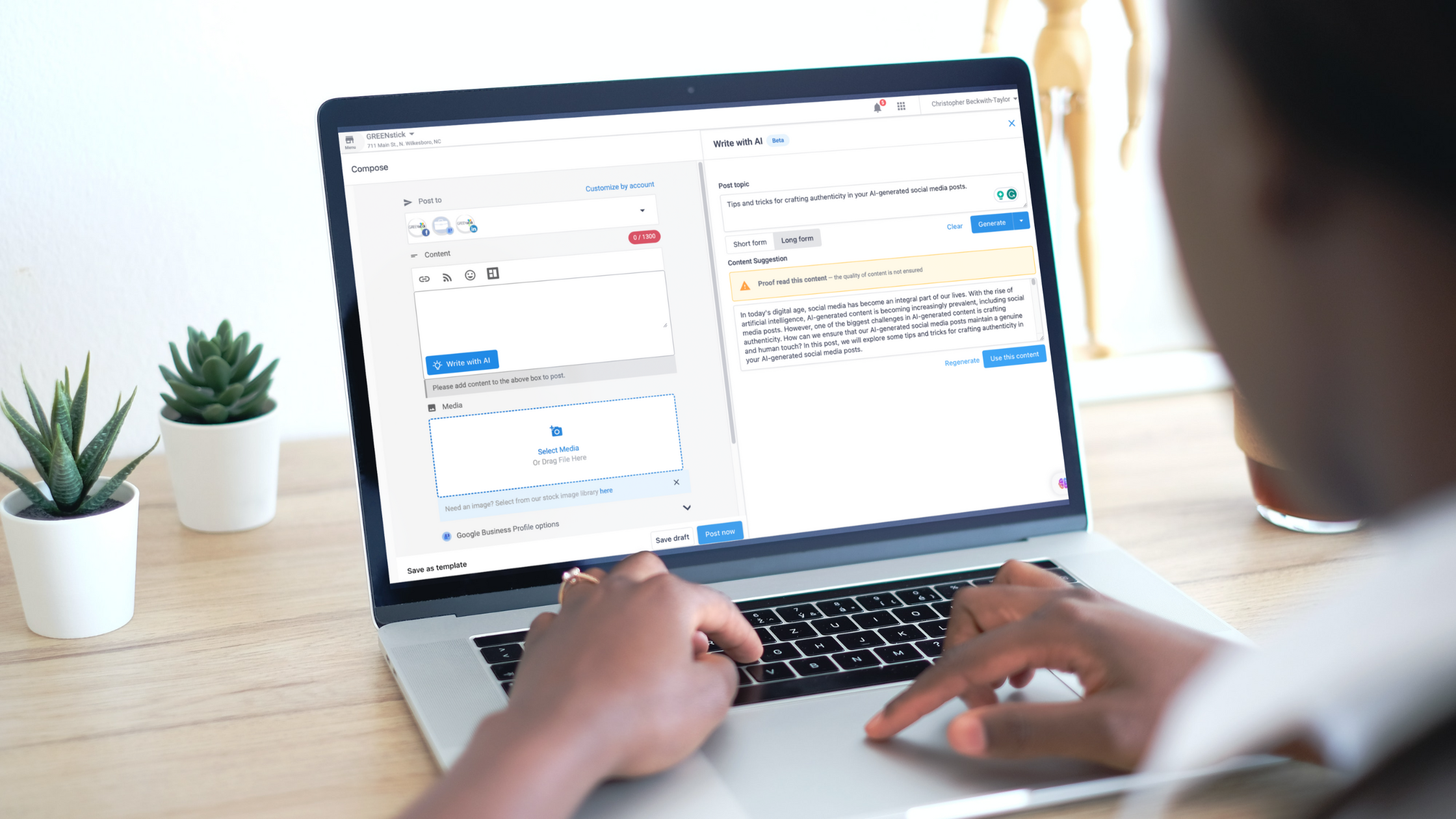What should you keep in mind when using AI?
When using AI, it’s important to remember that it doesn’t think like a human. It’s crucial to give it clear instructions and not assume that the generated content will be perfect without human intervention. To ensure accuracy and originality, it’s recommended that human editors review and edit the AI-generated content.
One potential issue with AI-generated content is plagiarism. Since AI learns by analyzing existing content on the web, there’s a possibility that it may replicate some phrases or sentences from other sources. Therefore, it’s advisable to use a plagiarism checker before publishing any AI-generated content.
Another limitation of AI is that it may not always get the facts right. Machines rely on the information available on the web, which may not always be accurate. Additionally, AI may struggle with complex or subjective topics that involve emotions or creativity. Therefore, it’s essential to verify and fact-check the content generated by AI.
As a small business owner, weighing the advantages and drawbacks of utilizing AI in your social media marketing strategy is important. Knowing the benefits and limitations can help you effectively leverage this technology.
Pros
- Processes that include AI are often more efficient, and AI can generate dozens of social media posts in minutes.
- AI can draw on a never-ending data stream to suggest posts or ideas for social media content.
- The non-stop production capability of AI helps drive the critical consistency in posting schedules that leads to success on social media.
- AI is currently advanced enough to provide grammatically correct content and even includes vital phrases or other elements you dictate.
- The volume abilities of AI support scaling.
- AI can provide much data and analysis that helps you customize social media marketing approaches for better performance.
Cons
- The content generated by AI is often awkward or dehumanized, which can hurt a brand’s reputation or ability to engage its audience if it isn’t edited.
- AI doesn’t always understand the values or voice of a brand, which can lead to content or suggestions that aren’t appropriate for a business.
- Cultural context or nuances in certain industries can elude AI, so it’s not the best tool for content creation in all cases.
- AI may have a preponderance of ideas, but it won’t deliver the type of outside-of-the-box thinking an experienced human can.
- Since AI relies heavily on existing data and algorithms, using it too much can create static content that doesn’t compete well.
- AI content isn’t always of the utmost quality, so it may require more layers of quality control.
To increase your likelihood of success in creating social media posts using AI, follow the tips below.
Ensure you understand your audience
AI content is only as good as the direction you provide. When you offer detailed information about your target audience, AI is better able to generate content that might engage or help that audience. Work to understand your business’s audience by:
- Understand your business, business goals, and audience.
- AI can offer analysis and demographics, interests, and user behavior that helps you publish content that’s right for your business.
- Don’t set and forget social media campaigns. Remain involved so you can understand the community’s interactions.
Add personalization and customization
To make AI-generated content more relatable, it’s important to infuse it with the appropriate brand voice and style. Depending on the desired tone, such as “witty” or “nurturing,” you may need to supplement AI-generated content in order to achieve the desired effect.
Edit and refine content for enhanced quality
Social media is important in reputation management, and brands can’t afford to have ungrammatical, low-quality, or inaccurate content on their pages. Businesses that use AI to generate content should create processes to edit and refine it. Consider having a human writer enhance the quality of the posts before passing them through regular proofreading and quality assurance channels.
Use AI as an idea generator
As a business owner, constantly coming up with new social media ideas for your team can be challenging, and it can often lead to a lack of creativity. AI-powered tools are excellent idea generators as they can provide you with an unlimited list of topics, ideas, facts, and questions related to your prompts, which can help you come up with fresh content. To get the best results, it’s essential to provide specific instructions to the AI tool. For instance, instead of asking for general ideas on Facebook posts about coffee, you can say, “Please provide 25 topics, questions, and links related to coffee that young professionals aged 25 to 35 would find interesting. Avoid anything related to health and wellness, politics, and religion.”
Always combine AI with human experience
As mentioned multiple times in this guide, it’s crucial to remember that AI-generated social media content shouldn’t happen in isolation. It’s worth emphasizing that human input should be incorporated both in the instructions given to the AI and in the content editing process.
Continuously optimize
As with any social media content you create and publish, follow up with analytics. Monitor post performance and customer feedback to understand what AI-generated content works and what doesn’t, and make tweaks to your processes to continuously improve your social media efforts’ performance.
Establish clear guidelines for using AI
AI is a tool, just like any other software program or technology you might use. You likely have written processes that govern how your teams use other tools, and AI shouldn’t be an exception. Create procedures and quality standards that outline what teams should—and shouldn’t—use AI for and what extra steps are required to ensure AI-generated content is appropriately edited.
Keep up with AI advancements
The advancements in AI technology are rapidly progressing, rendering the limitations of just a few months ago outdated. In fact, over half of all companies are already utilizing AI to enhance customer experiences. Social media content creators must stay up-to-date with these innovations to remain competitive. It’s important to encourage your team to stay informed by reading industry news and experimenting with new tools, so they can effectively recommend their use to support clients in the future.
Test and iterate
One of the best tips for managing social media is to continuously experiment with content and processes to improve performance. It’s important to test various AI-generated content versions to determine which ones resonate best with your target audience, just as you would test different posting times. Furthermore, it’s worth comparing AI-generated content with human-generated content, as well as content produced through a combination of these two methods.
Pay attention to context and relevance
Always double-check AI-generated posts and other content for context issues. Look up industry terms and any other unique phrases AI includes to ensure they’re used correctly.
6 AI tools(free and paid) to use for creating social media posts
Ready to get started with these valuable technology tools? Here are some paid and free AI tools for social media for your business to consider.
ChatGPT
You can use ChatGPT for social media in a variety of ways. Ask it to generate lists of ideas, discover hashtags you might use, pose frequently asked questions, or write entire posts.
As of the summer of 2023, you can use a free version of ChatGPT. A paid version provides a few more features and ensures you have access to more consistent uptime.
GREENstick’s Social Marketing
GREENstick’s Social Marketing tool includes a number of automations and AI functions to reduce the burden of social media work on business teams. Some features include:
- Post scheduling. Schedule posts across a variety of platforms from a single dashboard and rely on automations to ensure content is pushed out appropriately.
- AI suggestions for responses. Get AI suggestions in real-time when responding to customer comments or messages.
- AI suggestions for content. Get AI suggestions for hashtags and other content when creating posts.
- Data analytics. Leverage deep data insights about post performance, audience behaviors, and audience sentiment to inform social media strategies.
Grammarly or Word-Tune
These are AI editing tools that go beyond a simple spell check. Use them to refine your writing and ensure posts and messages are clear and concise. While there are limited free features you can try out, these are paid tools.
Magic Studio
This easy-to-use photo-editing AI lets you handle a few Photoshop-type tasks with the click of a mouse. You can remove backgrounds or other objects to create images that go with posts or align with a brand. You can use this app for free.
Stockimg.ai
If you want to include images with every post but don’t want staff spending valuable time searching stock image sites, this AI can help. It creates stock images and other visuals.
You can try out this tool with a very limited free plan. Paid plans provide access to more images per month.
Acrolinx
This platform includes AI functionality for creating and managing content. It includes tools and services that help optimize human- and AI-generated content to meet brand values and voice expectations. This is a paid service.
Frequently asked questions about AI-generated social media posts
How can I ensure my AI-generated social media posts align with my brand’s voice and tone?
Provide detailed instructions for AI when possible. Include links to content you want to sound like or provide examples of previous social media posts for your brand. You can also provide lists of words you don’t want to use or ideas you don’t want to convey. At the end of the day, you might consider adding human editing to refine content created by AI tools.
Are there any ethical concerns with using AI-generated social media content?
Common ethical concerns under discussion regarding AI-generated content include worries about bias, misinformation, and plagiarism. Artificial intelligence learns to create content by “ingesting” huge amounts of content people have created. AI tools mimic this content in an attempt to answer questions or generate responses to directives. This leads to many questions regarding copyright and intellectual property rights.
What are the copyright and intellectual property rights for AI-generated content?
AI-generated social media content can potentially be eligible for copyright protection and have intellectual property rights. The U.S. Copyright Office has recognized the possibility of granting copyrights to AI-generated work, although certain conditions may apply. The Copyright Office has even initiated an examination of copyright law and policy issues related to artificial intelligence (AI) technology.
However, it is crucial to note that copyright laws and regulations may vary across jurisdictions. Marketers and content creators using AI to generate content should seek legal advice and thoroughly examine the copyright laws applicable in their specific jurisdiction.

